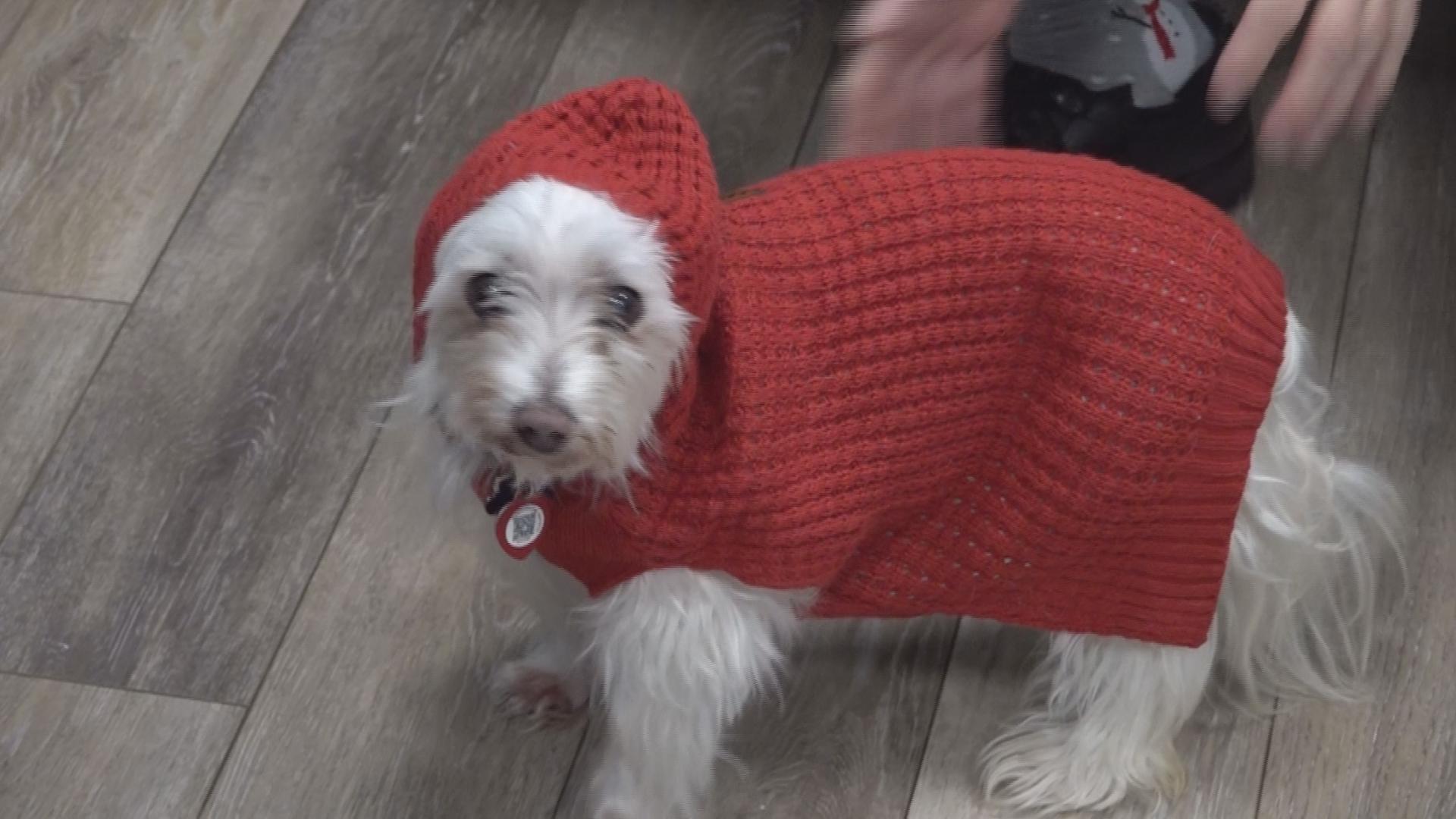WARNER ROBINS, Ga. — As winter temperatures plummet, pet owners need to take extra precautions to protect their four-legged companions from the cold, local veterinarians and pet owners warn.
Dr. Vernard Hodges, a local veterinarian, says that pets are just as vulnerable to winter's harsh conditions as humans.
"When it gets too cold, if it's too cold for you outside, it definitely is too cold for your pet," Hodges said.
Smaller animals and those with thin coats are particularly at risk for hypothermia. Hodges recommends pet owners watch for key signs of cold stress, including shivering, tacky gums and a reluctance to stay outdoors.
Patricia Phillips and Dennis Shema, local pet owners with several small dogs, have developed their own winter protection strategies.
"We get the blankets spread around the house," Phillips said. "So you cuddle up in a blanket."
Her husband Dennis adds that he puts sweaters on their smallest dogs, who get cold more easily.
Experts recommend several critical steps to protect pets during cold weather:
Paw Protection
Veterinarians suggest using booties or protective balms to shield pets' paws from ice, salt, and cold surfaces.
"One thing I see is they'll get the ice inside their paws - those kinds of things can really cause some burns," Hodges warned.
Clothing and Shelter
For smaller or short-haired pets, sweaters can provide additional warmth. Pet owners should ensure animals have warm, draft-free spaces indoors and limit outdoor exposure during extreme temperatures.
Nutrition and Hydration
Cold weather may require slight increases in food intake to help pets generate body heat. Ensuring constant access to fresh, unfrozen water remains critical.
Warning Signs
Pet owners should monitor their animals for signs of hypothermia, including:
- Excessive shivering
- Lethargy
- Weakness
- Difficulty moving
"Oftentimes smaller animals are more prone to hypothermia," Hodges said. "So you want to be real careful with babies, especially if they don't have a lot of hair."
Phillips echoes the veterinary advice. "
Keep your pets inside," she said. "They do feel the cold, even though they have fur coats."
Veterinarians recommend limiting outdoor activities when temperatures fall below 45°F, and being extremely cautious below 32°F. Finally, be cautious with elderly, very young, or thin-coated animals.
For pet owners unsure about their specific animal's needs, consulting with a veterinarian is always recommended.
RELATED: Dog winter safety: VERIFY Fact Sheet

